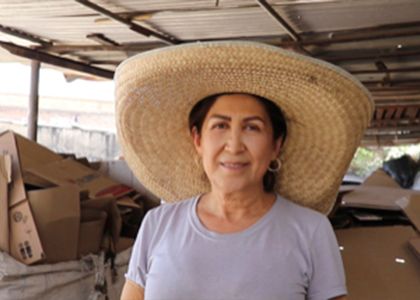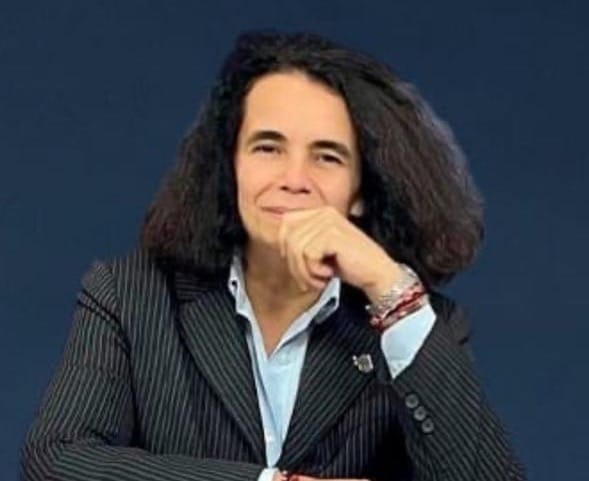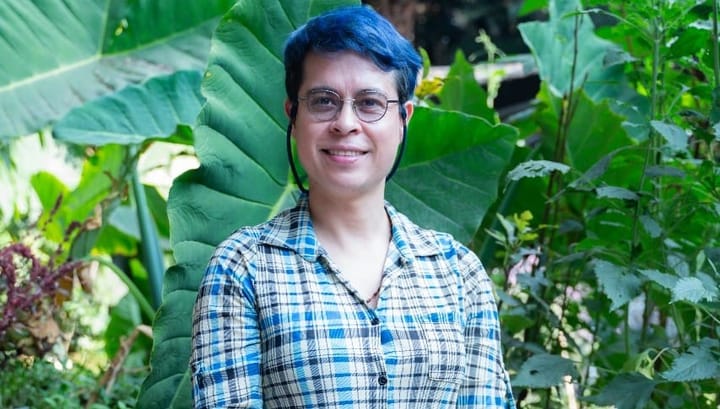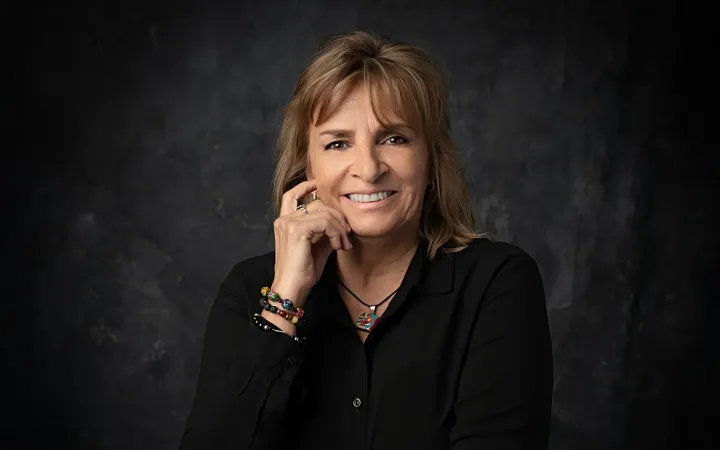
Por Content Opinión 51

Las calles de la la Colonia Ferrocarril en Guadalajara se alzan en medio de un murmullo constante, una sinfonía de voces y pasos entrelazados con el bullicio habitual. En una esquina al fondo de una calle poco transitada, hay un espacio seguro para las personas que quieren tomar un respiro, un descanso y una escapada de aquella rutina diaria que muchas veces está envuelta en los problemas sociales que se viven comúnmente. Ahí, en ese rincón hay un oasis de esperanza y trabajo decente, en donde quienes entran y salen encuentran respeto, buen trato y un modo de vida. Se trata de un centro de acopio donde se recuperan distintos residuos, entre ellos, las botellas de PET, el negocio de Guadalupe Burgos.
La historia de Guadalupe se entreteje con las sombras del oficio de su padre, quien era chatarrero, oficio que le permitió a ella estudiar y convertirse en ingeniera química. Fue a partir del año 2010 cuando separada y con una hija decidió enfrentar un mundo que, según su propio padre, era reservado para hombres. Sin mirar atrás, Guadalupe empezó a recolectar residuos, reuniendo lo que otros dejaban abandonado, los restos de plástico y cartón en los que ella veía el potencial de un futuro más limpio y próspero. Primero los desperdicios del mercado, después de las farmacias, lo que pudiera caberle en su coche.
Su historia no solo es un testimonio de éxito empresarial, sino también una lección de empatía y solidaridad. Ha generado vínculos con otras recolectoras urbanas quienes van por las calles con sus diablitos a recuperar distintos residuos para llevarlos a centros de acopio como el de Guadalupe. Lo que pareciera ser solo un trabajo, le ha permitido, además, ir tejiendo una red de complicidad entre mujeres que han batallado con el dinero, la soledad y el maltrato. El ambiente de las acopiadoras es el reflejo de la resiliencia humana, “no hay que juzgar por las apariencias, yo también estuve así toda sucia”, cuenta Guadalupe.
¿Qué la mueve? “La limpieza, ¿si no dónde terminaría ese plástico? Es mi granito de arena”, dice Guadalupe sin un solo atisbo de duda, como quien no ve otra opción y su misión sin lugar a dudas es dejar este lugar un poco mejor.
Guadalupe es socia acopiadora de PetStar, empresa 100% mexicana dedicada al acopio y reciclaje de botellas de PET con una trayectoria de más de 26 años que forma parte de la Industria Mexicana de Coca-Cola (IMCC) y, a través de su Modelo de Acopio Inclusivo PetStar (MAIP) propicia la movilidad social y el reconocimiento de los derechos de más de 30 mil mujeres y hombres dedicados a la recuperación de residuos, entre ellos Guadalupe, al ofrecer capacitación constante, un programa de bancarización, entre otros aspectos para impulsar el acopio y reciclaje inclusivo. Además, tiene la planta de reciclaje de PET grado alimenticio más grande del mundo, ubicada en Toluca, Estado de México, en la que se reciclan más de 3 mil 500 millones de botellas de PET al año, equivalentes a llenar el Estadio Azteca 2.5 veces. A esta planta, llegarán las botellas que PetStar recupera de sus Socios-Acopiadores, entre ellos Guadalupe, las cuales formarán parte de un ciclo de economía circular en el que nunca se convertirán en desperdicio.
Cuando termines de tomar esa botella de agua, o ese refresco, piensa que esa es tan solo el inicio de su historia y cuando la vacíes, aplastes, cierres y deposites correctamente, empezará nuevamente su camino para transformarse en una nueva botella.
Presentado por

Las opiniones expresadas son responsabilidad de sus autoras y son absolutamente independientes a la postura y línea editorial de Opinión 51.
Más de 150 opiniones a través de 100 columnistas te esperan por menos de un libro al mes.






Comments ()